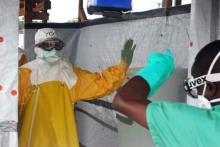Developing medical countermeasures (MCMs) before an emerging infectious disease hits is a ‘national security imperative,’ according to an Institute of Medicine Workshop Summary, and global health security strategies that effectively utilize public-private partnerships should be a top priority for health professionals and governments.
The IOM and several of its partner organizations coconvened a workshop panel on “Rapid Medical Countermeasure Response to Infectious Diseases: Enabling Sustainable Capabilities through Ongoing Public- and Private-Sector Partnerships,” in Washington on March 26-27, 2015. Meeting minutes are available online at the IOM website. The organization recently released a summary report on the panel’s discussions.
Although the panelist’s discussions do not officially reflect the conclusions of the IOM, participants at the workshop discussed the nation’s capacity to provide rapid access to MCMs when infectious disease outbreaks occur. Other topics discussed included preparedness gaps, the sustainability of public-private partnerships, case studies of past incidents of emerging threats such as influenza and coronaviruses, and lessons learned from the Ebola outbreak of 2014.
“Between events such as H1N1 influenza outbreaks, mission capabilities need to be sustained so capacity is not lost when the next event emerges. Additionally, many regulations and policies have been developed in response to past events, instead of looking forward to potential future needs and creating capabilities and partnerships in a systematic matter,” the report summary noted.
To read the full summary report, click here.


